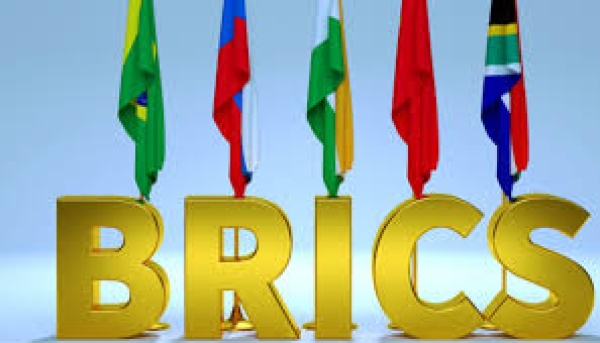Nigeria’s foreign capital inflows from BRICS nations have surged by 189% in the first half of 2024, amid the country’s ongoing efforts to secure a spot within the expanded BRICS coalition.
An analysis of data from the National Bureau of Statistics (NBS) revealed that capital importation from BRICS countries rose from $438.72 million in the first six months of 2023 to $1.27 billion in the same period of 2024.
The BRICS group, initially comprising Brazil, Russia, India, China, and South Africa, expanded on January 1, 2024, by officially welcoming five new members: Saudi Arabia, Iran, Egypt, Ethiopia, and the United Arab Emirates (UAE).
Argentina was also invited but declined membership, making the total membership 10.
While Nigeria was not part of this wave of inclusion, the country remains steadfast in its efforts to join the group within the next two years, recognizing the potential benefits in trade and investment flows that BRICS membership could bring.
What the data says
- The surge in BRICS capital inflows was primarily driven by South Africa and Saudi Arabia, which accounted for the largest increases in H1 2024.
- Inflows from South Africa skyrocketed from $228.09 million in H1 2023 to $838.32 million in H1 2024, marking a significant 267% rise.
- South Africa’s dominant position in capital flows suggests strong bilateral relations, especially in financial services, consumer goods, and telecommunications.
- Saudi Arabia, a newly inducted BRICS member, saw a remarkable jump in capital inflows, rising from a mere $0.03 million to $147.07 million during the same period.
- Similarly, China, a relatively smaller investor in the previous year, saw its capital importation into Nigeria leap from $0.25 million to $35.64 million over the same period.
- China’s growing investments can be attributed to its global Belt and Road Initiative, which seeks to enhance infrastructure and trade networks across Africa, with Nigeria being a key partner.
- Among the newly inducted BRICS members, the UAE also contributed to the rise, with inflows growing from $209.41 million in the first half of 2023 to $245.19 million in 2024.
- These inflows reflect the deepening economic ties between Nigeria and the Gulf states, particularly in energy, infrastructure, and trade.
50% of BRICS countries have zero foreign capital in Nigeria
While there was a general increase in investments from BRICS member countries, half of the countries on the BRICS list did not record any foreign capital inflows into Nigeria in both H1 2023 and H1 2024.
These countries include Brazil, Russia, Iran, Egypt, and Ethiopia. Despite being members of the BRICS coalition, these nations have not made any capital investments in Nigeria during the period under review.
This lack of inflow could be attributed to a range of factors, including differing economic priorities, regional focus, or geopolitical considerations that may influence their investment strategies.
What you should know
November last year, the Minister of Foreign Affairs, Yusuf Tuggar, was reported to have said that Nigeria plans to become a member of the BRICS economic bloc in the next two years and join the G20 group of nations.
- The Minister said that Nigeria meets the qualification for joining organisations like the BRICS and G20, noting the size of her economy and her population is a suitable criterion.
- Last year, Nigeria’s Vice President, Kashim Shettima attended the BRICS summit in South Africa but didn’t push to become a member when the bloc admitted new members including two from Africa – Ethiopia and Egypt.
- In September this year, Tuggar, the Foreign Affairs Minister, reiterated the country’s interest in joining BRICS, an influential economic bloc comprising Brazil, Russia, India, China, and South Africa.
Tuggar explained that while Nigeria has not yet formally applied to join BRICS, the country would do so “at the right time.”
He noted that joining the bloc is indeed on the radar of the Bola Tinubu administration.
[Nairametrics]


